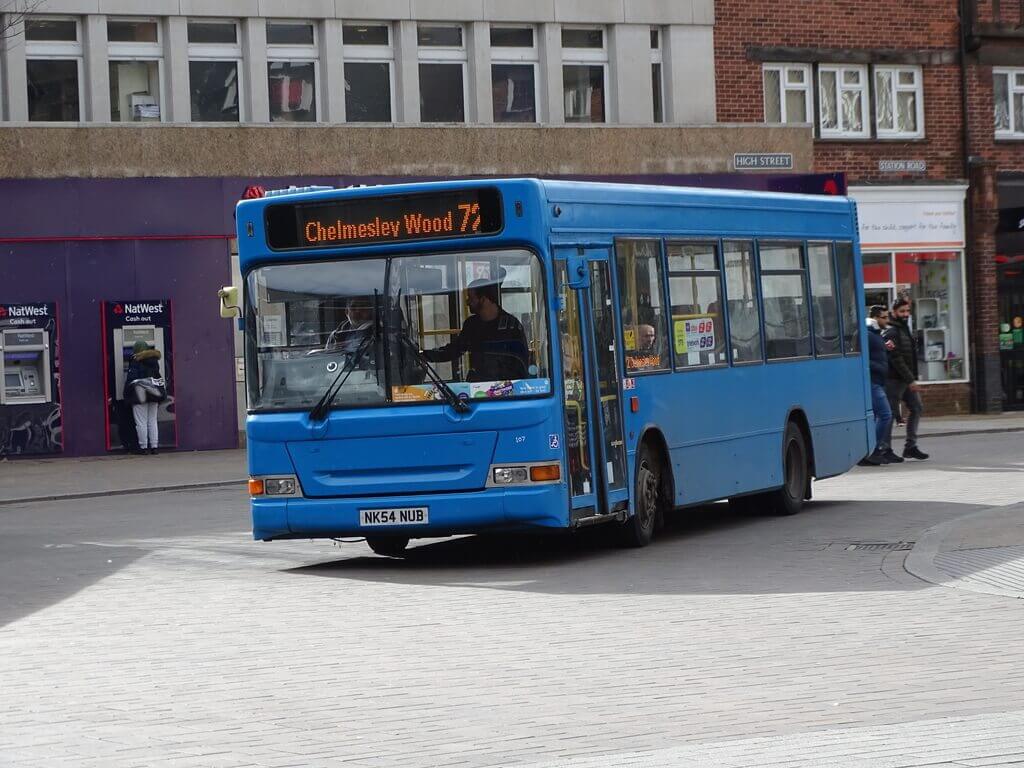The standard national PSV licence held by Discount Travel Solutions Ltd (DTS) has been varied under Section 17(2)(d) of the Public Passenger Vehicles Act 1981, reducing the maximum number of vehicles from six to four for an indefinite period. DTS has been fined a total of £1,200 for failure to operate according to the registered timetable and agreed to undertakings that vehicle roller brake tests will be carried out at least every 12 weeks, and safety inspections every four weeks.
DTS held a standard national PSV licence for six vehicles, granted in September 2013. The sole Director is Kamaldeep Singh Mann, and the nominated Transport Manager is Inderjit Singh. Following a public inquiry in September 2014, the then Traffic Commissioner (TC) curtailed the licence from six to two vehicles for reasons of financial standing and fined the company £300 for failure to operate local bus services in accordance with registered details. This was lifted in October 2015 and the authorisation for six vehicles restored.
In September 2019 the TC received a report from a DVSA traffic examiner who had monitored the timetable performance of local services run by DTS following a complaint from a passenger that the operator’s last service of the day on the 11A (Outer Circle) had failed to complete its route. Observations on six days between 10 and 26 July 2019 recorded an overall non-compliance rate of 78% of the 28 services observed. Eight failed to run; six were more than one minute early and eight were more than five minutes late. Only six ran within the window of tolerance. DTS responded that around seven of the delayed journeys had experienced heavy traffic; five had been caused by some kind of vehicle malfunction; two were caused by a driver being taken ill, and in seven cases the driver had no excuse.

In October 2019 the TC received a report from a DVSA vehicle examiner which recorded an unsatisfactory maintenance assessment. The reasons were a higher than average prohibition rate (37% prohibition rate over the past two years); and a high (40%) MOT failure rate, with failures for multiple items on each occasion, all of which included brake system failures, leading to the conclusion that the standard of preparation for MOT test was poor.
The operator was called to a Public Inquiry (PI) in Birmingham on 19 December 2019. Present were Director Kamaldeep Singh Mann and Transport Manager Inderjit Singh, supported by Transport Consultant Mirhal Johal and represented by Murray Oliver of Oliver Legal Solicitors Ltd.
In the company’s defence, Mr Oliver said it had increased the number of service checks it made. Ticketer machines that monitored early/late running in real-time were to be installed in vehicles by the end of January 2020, and the troublesome 72 and 11A routes were to be discontinued, with three vehicles remaining on the 11C. The main reason given for the high level of non-compliance was the heavy and unpredictable nature of the traffic on the long and complex 11. The company said it had tightened procedures, and new drivers have a day’s paid training to familiarise themselves with the route.
It said that vehicles were now given safety inspections at four-week intervals rather than five, two pre-MOT inspections are carried out by different providers, and cited evidence that it was able to improve, saying it would prefer to remain at six vehicles but could cope with a curtailment to four.
The TC had some sympathy with the difficulty experienced by operators in adhering to timetables on long and busy routes like the 11, where the variability of traffic conditions from day to day makes it difficult to meet the six-minute window of tolerance, but pointed out that of the journeys observed, six ran more than one minute early and three were caused by a fault with the vehicle, which is also within the operator’s control. The operator’s prohibition and MOT failure rates were considered to be unacceptably high and that the standard of maintenance and MOT preparation was poor.
The TC found that the operator had failed without reasonable excuse to operate local services according to the registered timetable; had failed to fulfil its undertaking to keep vehicles fit and serviceable, and; its vehicles have incurred roadworthiness prohibitions. This lead to the reduction in licences to four, which allows one spare vehicle plus three in service.
Although there were some mitigating factors including heavy traffic, counting against these was the fact that the company was fined by the TC in 2014 for non-compliant running and did not seem to have made improvements. The TC, therefore, decided to impose a fine of £200 per authorised vehicle, a total of £1,200. The TC accepted undertakings offered by the operator concerning roller brake testing and the frequency of vehicle inspections. The good repute of previous Transport Manager Inderjit Singh is retained.

